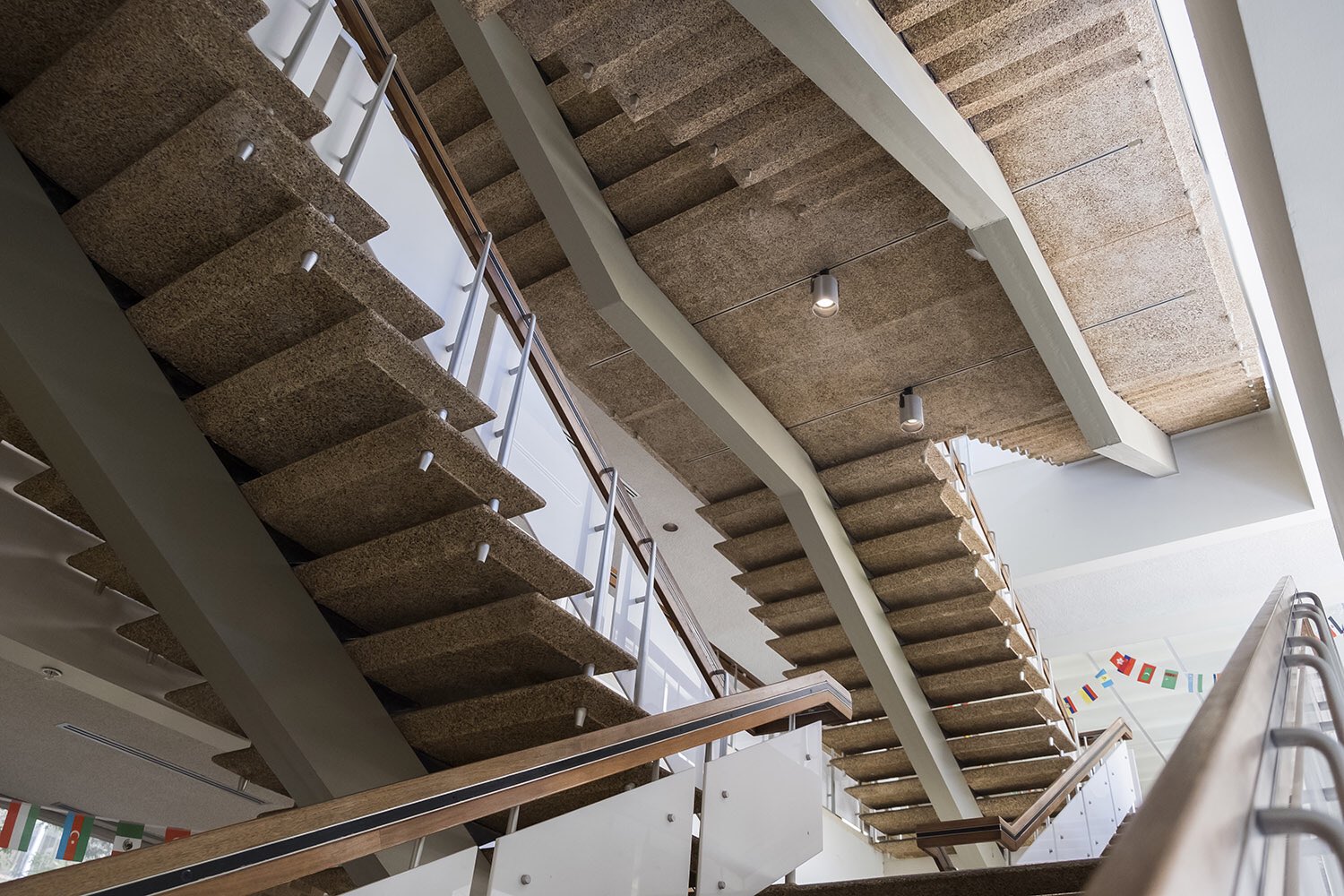Today we break down the literature for exterior and interior pathways in education communities. We limit the term “pathway” to refer to human pathways (as in egress and ingress paths); not wiring or piping pathways. Maximum distance of travel from within a building and along an egress path toward safety is a core topic in building safety literature. Starting 2023 we will break down coverage of subject catalogs and bibliographies:
Pathways 100: Survey of all titles for both the exterior and interior environments
Pathways 200: Review of codes, standards and guidelines for building interiors
Related recent research:
Hallways and stairways lighting system cost reduction
The research on circadian rhythm parameters testing of lighting quality in classrooms
Research and discussion on classroom blackboard lighting
Pathways 300: Review of codes, standards and guidelines campus environment outside the buildings; all seasons
Pathways 500: Review of noteworthy litigation. Campus pathways are rich in possibilities for legal actions so we will refresh our understanding of the landmark decisions.
This breakdown is “somewhat” inspired by recent action by ASHRAE International to expand the scope of ASHRAE 90.1 to heating and cooling environments outside buildings. The new title of ASHRAE 901. includes the word “Site”, which is another way of saying “the world” outside buildings. Standards Michigan commented on the consequences of doing this in the proposal stages in 2020-2021.
The topic involves titles from many standards setting organizations; among them:
American National Standards Institute
C136-series for street lighting
International Code Council (accessible and useable ingress and egress entrances, paths and exits)
International Building Code: Chapter 10 Means of Egress
ICC A117 Accessibility Meeting Agenda December 15 2022 (Pathways)
ICC A117.1 2023 Meeting Calendar Accessible and Useable Buildings
Modifications for A117.1 12-1-2022 meeting
IFC §909.21.6 Proposal FS118-21 Pressurization systems for elevator pathways (now being discussed during the ICC Group A Committee Action Hearings in September)
American Society of Civil Engineers (roads, sidewalks)
American Society of Mechanical Engineers
ASME A17.1-2019: Safety Code for Elevators and Escalators
Institute of Electrical and Electronic Engineers (wayfinding along unofficial footpaths using the internet of small things)
Education & Healthcare Facility Electrotechnology
A BIM-Based Coordination Support System for Emergency Response
Computer Vision Method in Means of Egress Obstruction Detection
National Electrical Manufacturers Association
National Fire Protection Association (fire protection for interior premises, fire truck routes, electric signage, security)
2021 NFPA 101 Life Safety Code
Chapter 3 Means of Egress
Chapter 12-13 Assembly Occupancies
Chapter 14-15 Educational Occupancies
Chapter 18-19 Health Care Occupancies
2022 Standard for Emergency and Standby Power Systems
Chapter 5 – Emergency Power Supply: Energy Sources, Converters and Accessories
ASTM International Committee C09 on Concrete and Concrete Aggregates
Standard Terminology Relating to Concrete and Concrete Aggregates
…And about 20 others.
We might venture onto the minefield of sensitivities about signage: too much, too many, too big, too small? There are signs everywhere in academia.
Many titles in the foregoing list are inspired by legal requirements of the Americans with Disabilities Act administered by the US Department of Justice
As usual, we’ll only have time to identify the titles and concepts in motion and set up a separate markup session. Open to everyone; use the login credentials at the upper right of our home page.
MORE:
International Building Code §3104 Pedestrian Walkways and Tunnels
2023 National Electrical Code Article 420 — Luminaires, Lampholders, and Lamps
2023 National Electrical Code Article 600 – Electric Signs and Outline Lighting
Bibliography
Shaping the Sidewalk Experience
Federal Highway Administration University Course on Bicycle and Pedestrian Transportation
“The Via Appia: A Case Study in the Political Geography of Imperialism” Hannah Friedman. This article, published in the Journal of Historical Geography in 2011, examines the Appian Way as a product of Roman imperialism and a reflection of Roman attitudes toward the landscape and its inhabitants. The author draws on both textual and archaeological evidence to explore the road’s impact on the regions it passed through.
“The Appian Way: The Road that Built the Roman Empire” by Richard Talbert – Cambridge University Press 2012. A a comprehensive study of the Appian Way and its significance to the Roman Empire. The author draws on a wide range of archaeological and historical evidence to explore the road’s construction, use, and legacy.









